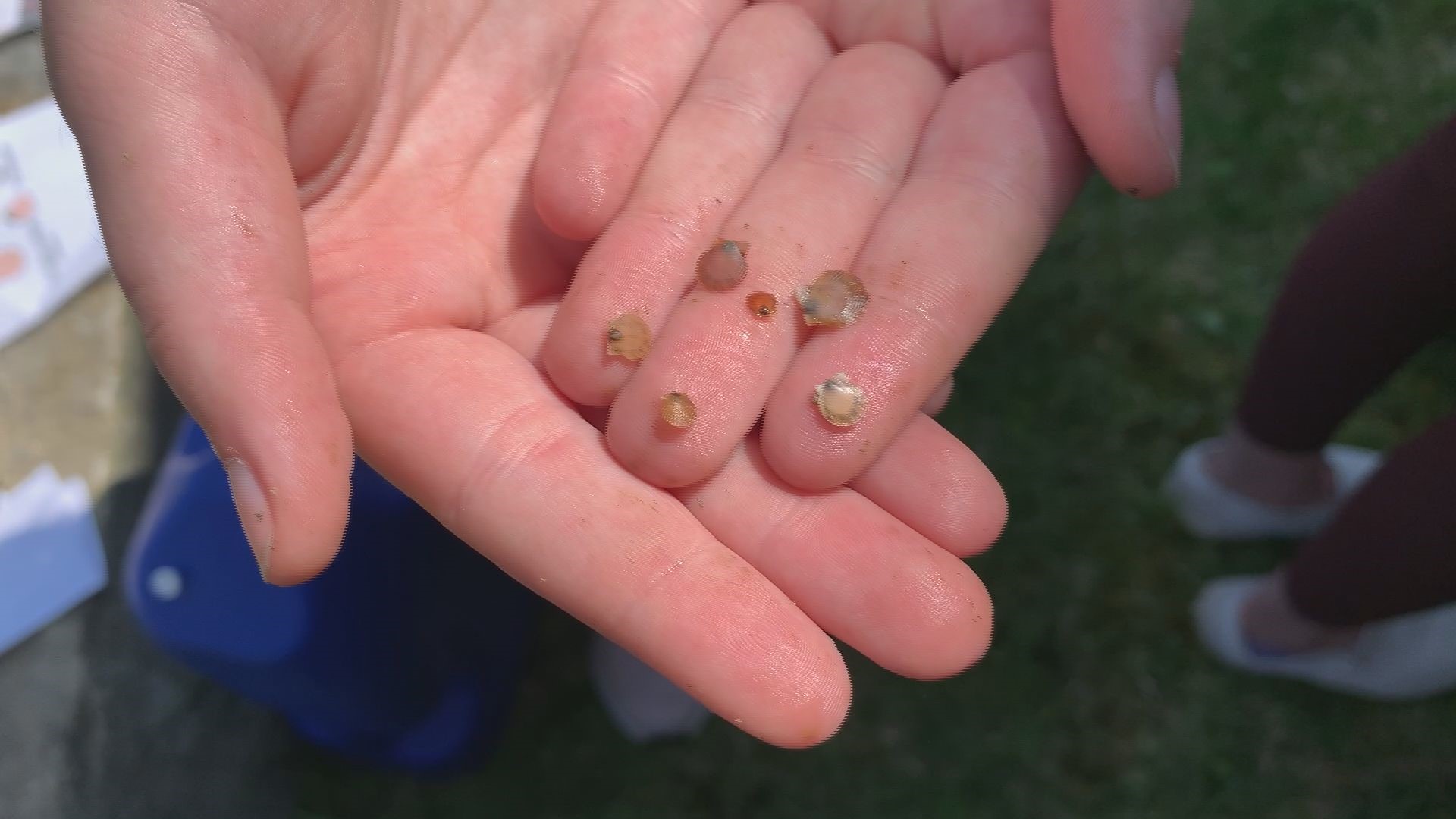ROCKLAND, Maine — As the spring days edged closer to summer, students at Oceanside High School in Rockland skipped class to search for scallops. On a sunny May school day, sophomore Aiden Weymouth boarded a skiff along with other students to retrieve spat bags—mesh bags designed to trap scallop larvae that floats freely in the ocean—from Penobscot Bay.
Students placed nine spat bags in the harbor last fall. Altogether, they lost five bags and one was destroyed, but three bags remained. They spent part of their school day carefully picking baby scallops from the mesh.
"I had no idea they could be so small," Weymouth said.
The baby scallops will need three more years in the water until they are big enough to be sold and eaten but these particular scallops will be studied instead.
It's part of the research being done by the scientists at the Hurricane Island Center for Science and Leadership. They have been farming scallops for the last decade as they use data to monitor the larvae present in Penobscot Bay. Their goal is to help scallop farmers, as well as the wild fishery.
"We believe the best way to teach science is to get out there and get your hands in it and see it in the real world," Hurricane Island Center Executive Director Bo Hoppins said.
Those are words the island researchers and staff live by.
Fifteen miles off the coast of Rockland, south of the much larger island of Vinalhaven, sits Hurricane Island. From 1870 to 1914, granite from the island's quarry was mined and transformed into architectural components for buildings and monuments that were shipped across the United States.
Remnants of the era are still visible around the island but since 2009, it has served as a school and research facility for students from May to October. The campus is off-grid, powered by solar energy, and open to students from sixth grade to twelfth.
On a three-acre aquaculture site, researchers monitor and grow farmed scallops, which is Maine's third most profitable shellfish. There are only a handful of sea scallop farms in the U.S. and most of them are in Maine, run by small fishing families that started experimenting with harvesting scallops for the last two decades.
RELATED: Fishermen turn to Farming | Farmed sea scallops aren't just sustainable, they're good for habitat
"We really try and connect students with their home base and help them understand the environment around them and help them understand how they can be change-makers in the future of that environment," lead researcher Phoebe Jeielek said.
Researchers with Hurricane Island Center for Science and Leadership have been monitoring scallop larvae and have been working with fishermen to better understand spawning. Engaging students in their research is not only helpful but they hope it will inspire the younger generation to get involved in an emerging industry.

